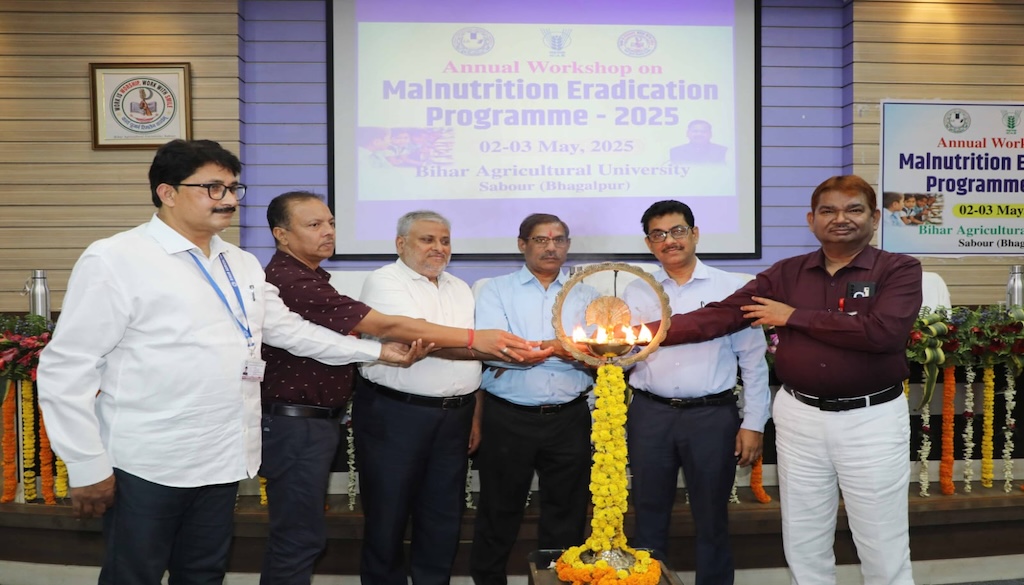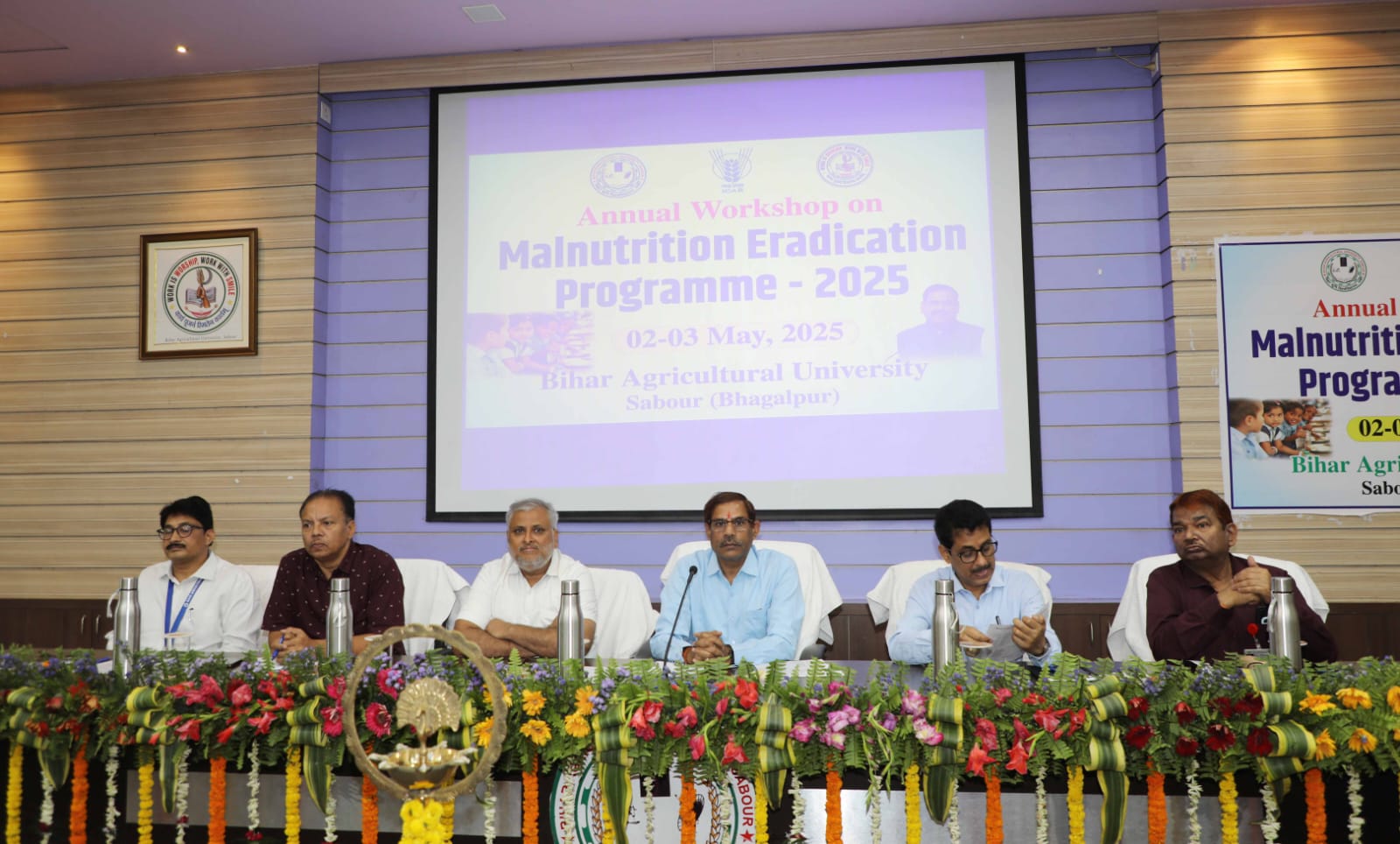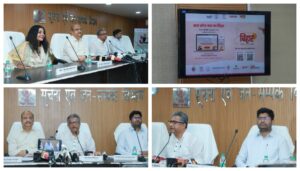Bihar Agricultural University Leads Fight Against Malnutrition With Statewide Programme

Sabour: Under the umbrella of the university’s malnutrition eradication awareness programme, the workshop saw participation from scientists representing 22 Krishi Vigyan Kendras (KVKs) and seven colleges. Organised under the guidance of the university’s Vice Chancellor, the event aimed to evaluate the impact of ongoing initiatives and develop future strategies to address nutritional deficiencies in rural communities.
Now in its second year, the programme mandates each KVK and college to adopt one village and implement targeted interventions—ranging from the promotion of nutri gardens and coarse grains to mushroom cultivation and increased fruit and vegetable consumption. These efforts are designed to enhance dietary diversity and nutritional outcomes at the grassroots level.

During the workshop, representatives presented their progress reports for 2024–25, outlining practical measures undertaken to combat malnutrition. Suggestions were also shared on scaling up these efforts. The Dean of Agriculture emphasised the importance of collecting baseline data on malnutrition to better structure future interventions, while the Director of Extension Education, who presided over the event, reiterated the Vice Chancellor’s vision and laid out a roadmap involving health camps, bio-fortified seeds, and enhanced community outreach.
Participants included a range of senior academics and scientists from BAU, including the Deputy Director of Training, Director of Seeds, Principal of BAU Sabour, and key programme coordinators. Dr Meenu Shashi, the nodal officer for the initiative, outlined future directions for the campaign, and Dr Shobha Rani of KVK highlighted strategies to expand the initiative’s reach in 2025. The programme, they noted, has the potential to serve as a model for government-led interventions.
Throughout the workshop, contributors stressed that malnutrition remains one of society’s most pressing challenges—and one that requires a holistic, evidence-based, and locally driven approach.





